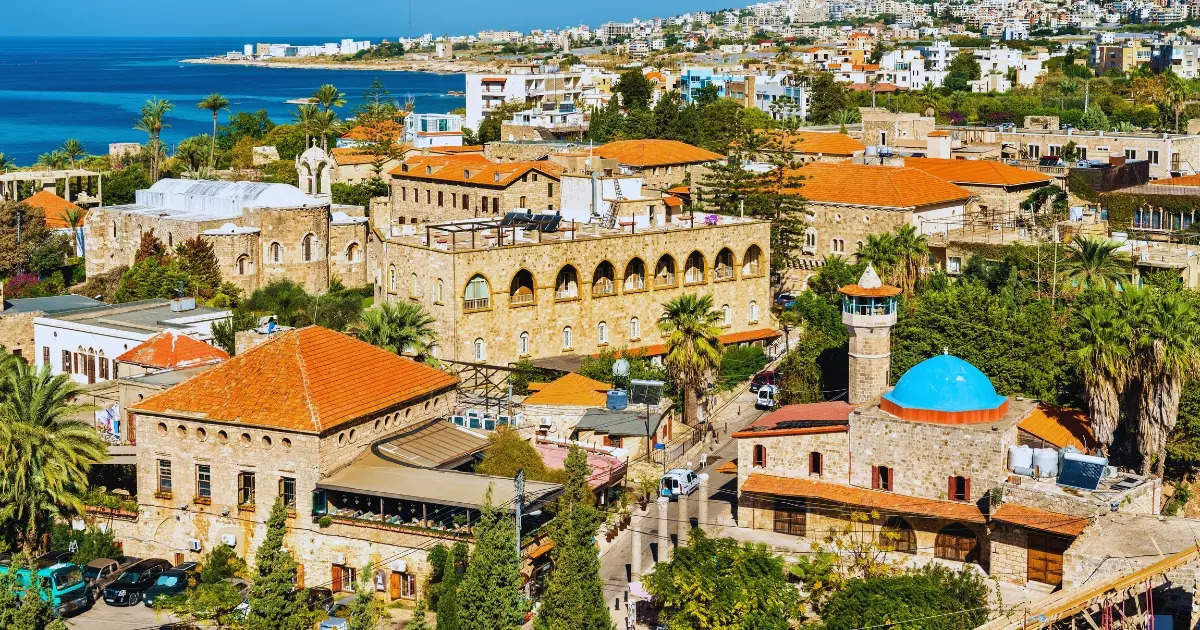Headline:
Unveiling the 10 Oldest Cities in the World: A Journey Through Time
Introduction:
From ancient civilizations to bustling modern life, the world’s oldest cities serve as living testaments to our shared history. The Times of India recently highlighted these remarkable places, where remnants of the past intertwine with today’s vibrancy. In this exploration, we’ll delve into the ten oldest cities globally, revealing their rich narratives, cultural significance, and how they continue to influence our modern society.
The Oldest Cities: A Glimpse into History
1. Jericho, Palestine
Estimated Age: Over 11,000 years
Jericho is often hailed as one of the oldest inhabited cities on earth, boasting structures from as early as 8000 BCE. Its strategic location near the Jordan River made it a focal point for trade and agriculture in antiquity. Archaeological findings, such as the ancient walls and towers, solidify Jericho’s role as a cradle of civilization.
2. Byblos, Lebanon
Estimated Age: 7,000 years
Byblos, known for its Phoenician heritage and as an early center for maritime trade, serves as a cultural cornerstone in the Mediterranean. Archaeological discoveries, including the remnants of ancient papyrus-keeping, have established it as a center of language and literacy, which is crucial to modern communication.
3. Damascus, Syria
Estimated Age: 4,000 years
Damascus is not only one of the oldest cities but also an enduring symbol of resilience through conflict and time. According to Dr. Ammar Kassem, a historian specializing in Middle Eastern studies, “The city has been a melting pot of cultures, deeply influencing art, architecture, and religion across the region.”
4. Athens, Greece
Estimated Age: 3,400 years
Renowned for its contributions to philosophy, democracy, and art, Athens remains a vibrant cultural epicenter. The Acropolis, with its magnificent Parthenon, continues to draw millions of tourists each year, celebrating not only Greece’s heritage but that of mankind.
5. Varanasi, India
Estimated Age: 3,000 years
Varanasi, one of the oldest continuously inhabited cities in the world, holds immense spiritual significance in Hinduism. The Ganges River, considered sacred, is lined with ghats where rituals and ceremonies take place daily, a living embodiment of ancient tradition.
6. Jerusalem, Israel
Estimated Age: 3,000 years
As a city of profound religious importance to Judaism, Christianity, and Islam, Jerusalem has been a focal point of pilgrimage and conflict alike. Its ancient streets tell stories of resilience, faith, and diverse cultures that have left indelible marks on its identity.
7. Lisbon, Portugal
Estimated Age: 3,000 years
Lisbon’s mix of traditional neighborhoods and modern innovation presents a unique blend of history and lifestyle. Identified as one of Europe’s oldest capitals, its maritime past has shaped its culture, famously encapsulated in the phrase, "the city that sails."
8. Cairo, Egypt
Estimated Age: 1,000 years
Cairo’s long-standing significance is attributed to its proximity to the pyramids of Giza, one of the Seven Wonders of the Ancient World. As a notable center of Islamic culture, its stunning mosques and venerable history make it an essential chapter in the story of human civilization.
9. Sana’a, Yemen
Estimated Age: 2,500 years
Sana’a is famed for its uniquely preserved medieval architecture and rich heritage. As a trading hub in ancient times, its architectural style reflects a blend of both Arab and Islamic influences, making it a beacon of cultural significance in the Arabian Peninsula.
10. Quito, Ecuador
Estimated Age: 2,800 years
Quito, sitting high in the Andean foothills, is recognized for its well-preserved colonial architecture. This UNESCO World Heritage site also reflects the fusion of indigenous and Spanish cultures, a testament to its diverse history.
The Significance of These Ancient Cities
Understanding these oldest cities goes beyond appreciation for their historical status. They are essential in various contexts, including:
- Cultural Heritage: Each city embodies centuries of artistic and architectural achievement, showcasing the ingenuity of human creativity.
- Tourism: These ancient cities are vital to the global tourism industry, attracting millions each year and contributing significantly to local economies.
- Scholarly Research: They serve as archaeological treasure troves for researchers and historians, providing insights into human civilization’s evolution.
As stated by Dr. Marwa El-Sayed, a cultural anthropologist at the University of Cairo, “These cities represent humanity’s continuity and resilience, reminding us of our ability to adapt and innovate through the ages.”
Navigating Modern Challenges
While these cities thrive on their rich histories, they also face modern challenges – urbanization, climate change, and conflict. Preservation efforts are crucial. Organizations worldwide, such as UNESCO, actively work to ensure that these ancient places maintain their integrity amidst rapid modernization.
Engagement and Exploration
Engaging with these ancient cities can deeply enrich our understanding of human civilization. We encourage readers to share their thoughts on which city fascinates them the most or any personal experiences they might have in these historical places.
For those eager to learn more, please check our related articles: World Heritage Sites You Must Visit and The Impact of Community on Culture. For authoritative insights, consider visiting links from UNESCO and National Geographic.
As we continue to explore the stories of these ancient cities, we invite you to reflect on the timeless connections that bind us to our shared history. What insights or experiences do you have related to these cities? Join the conversation!
